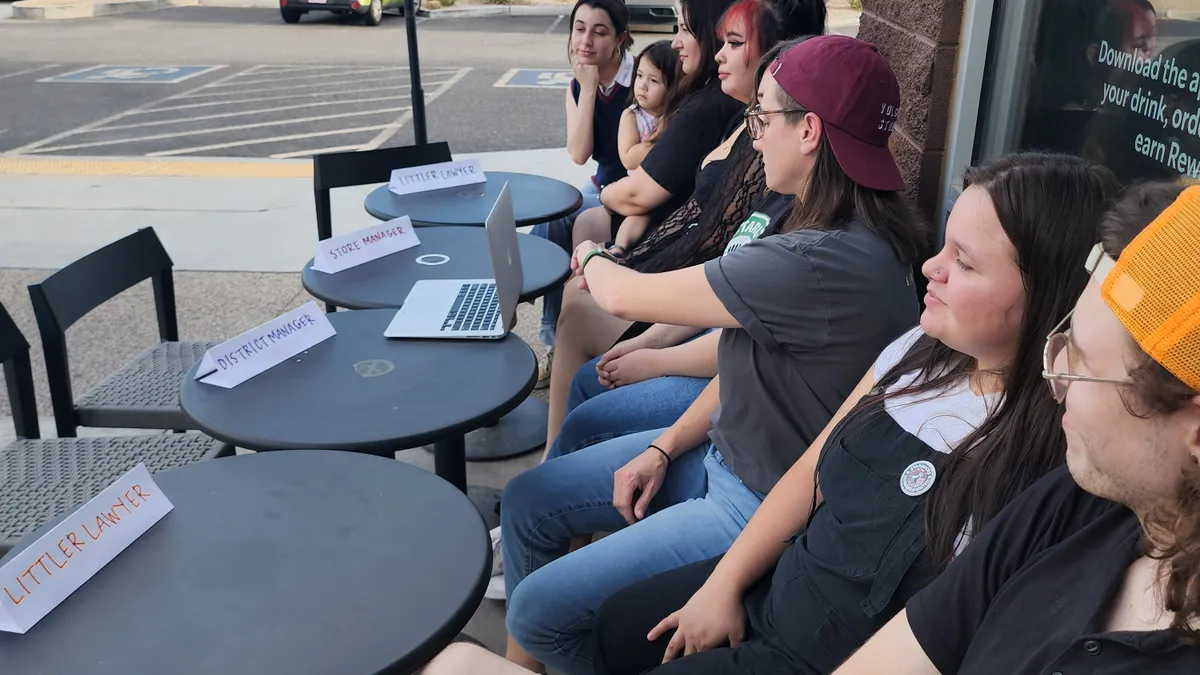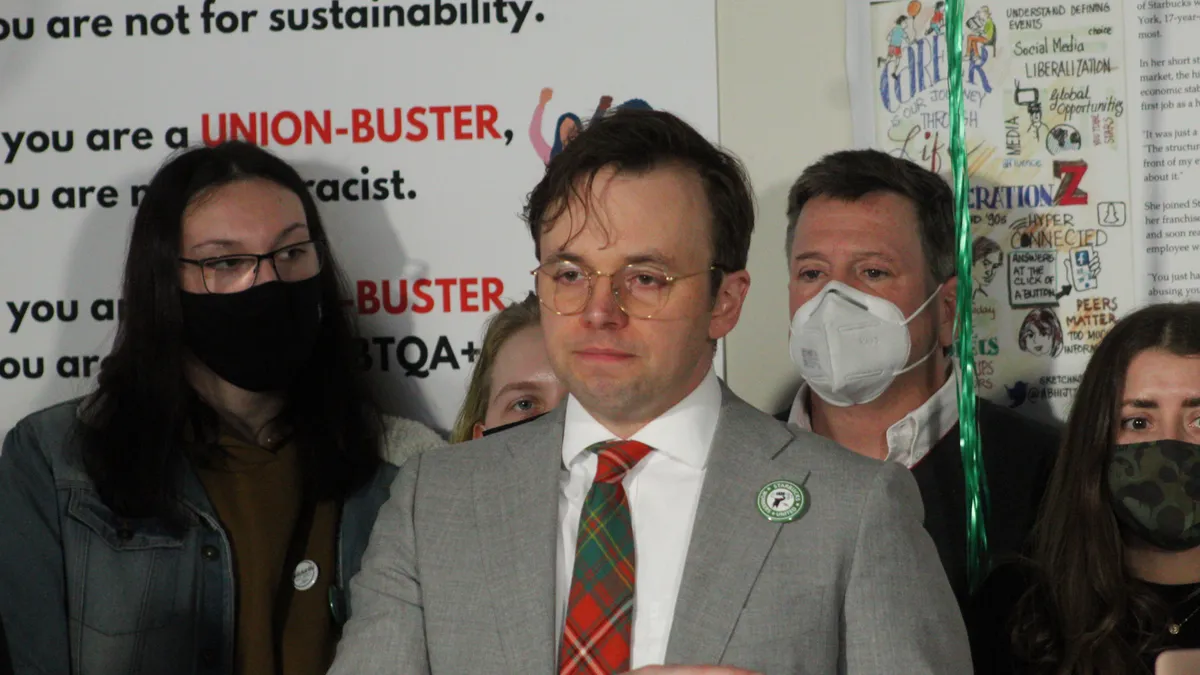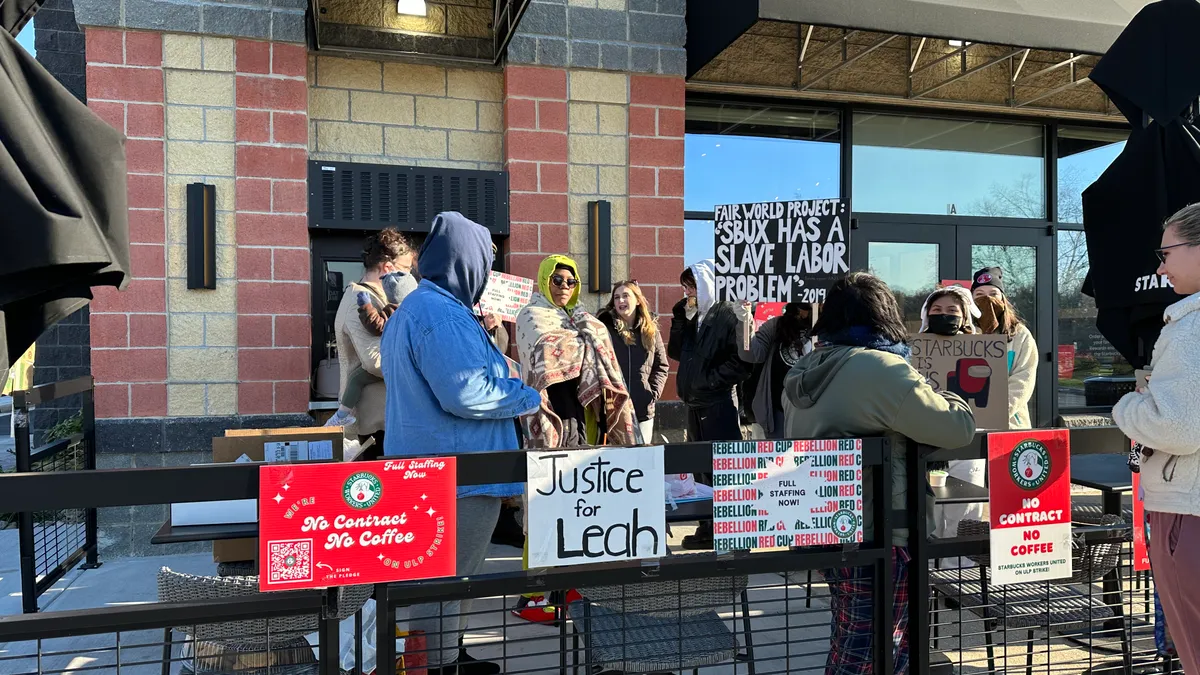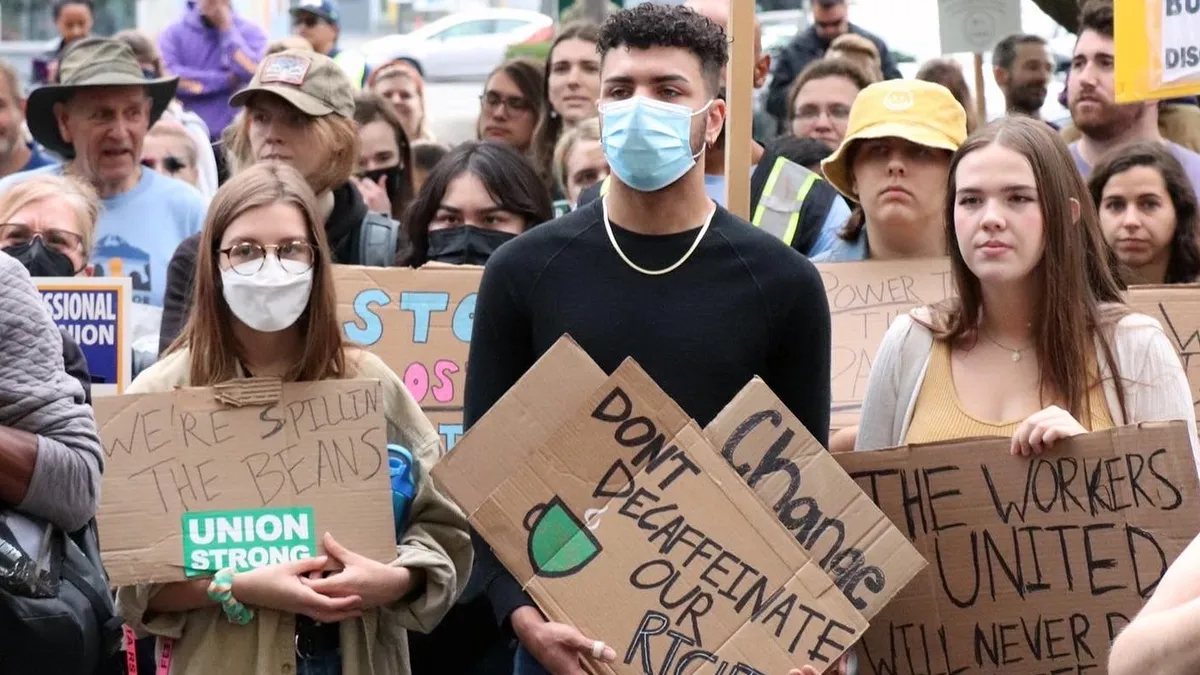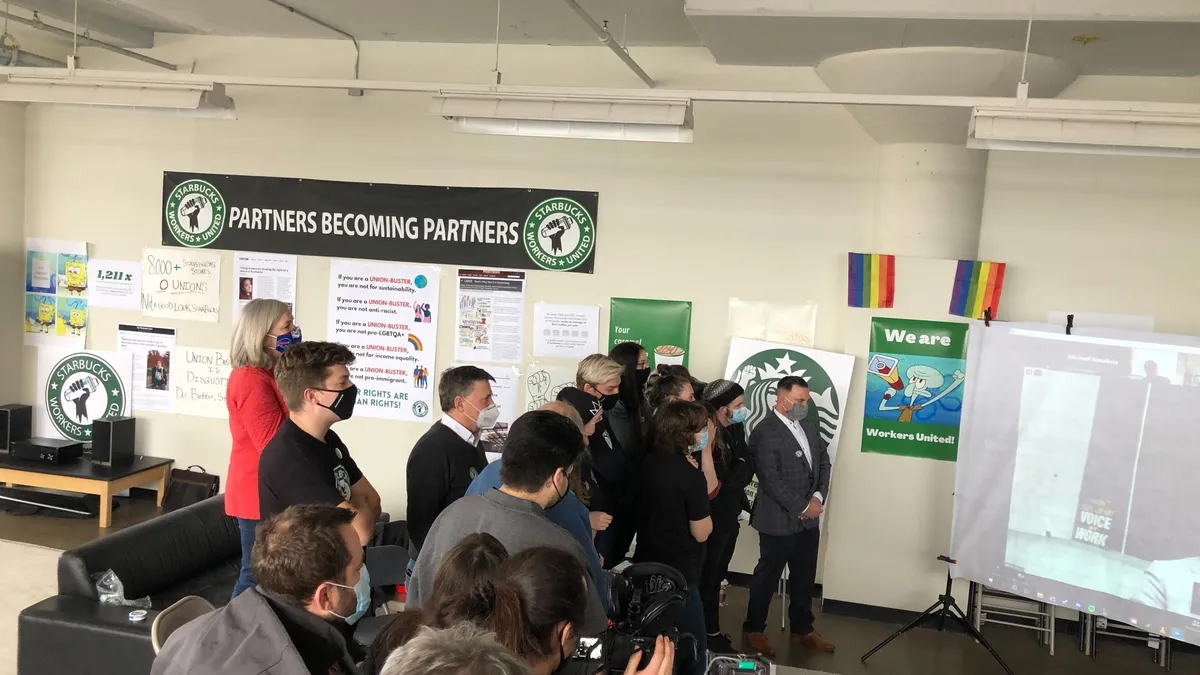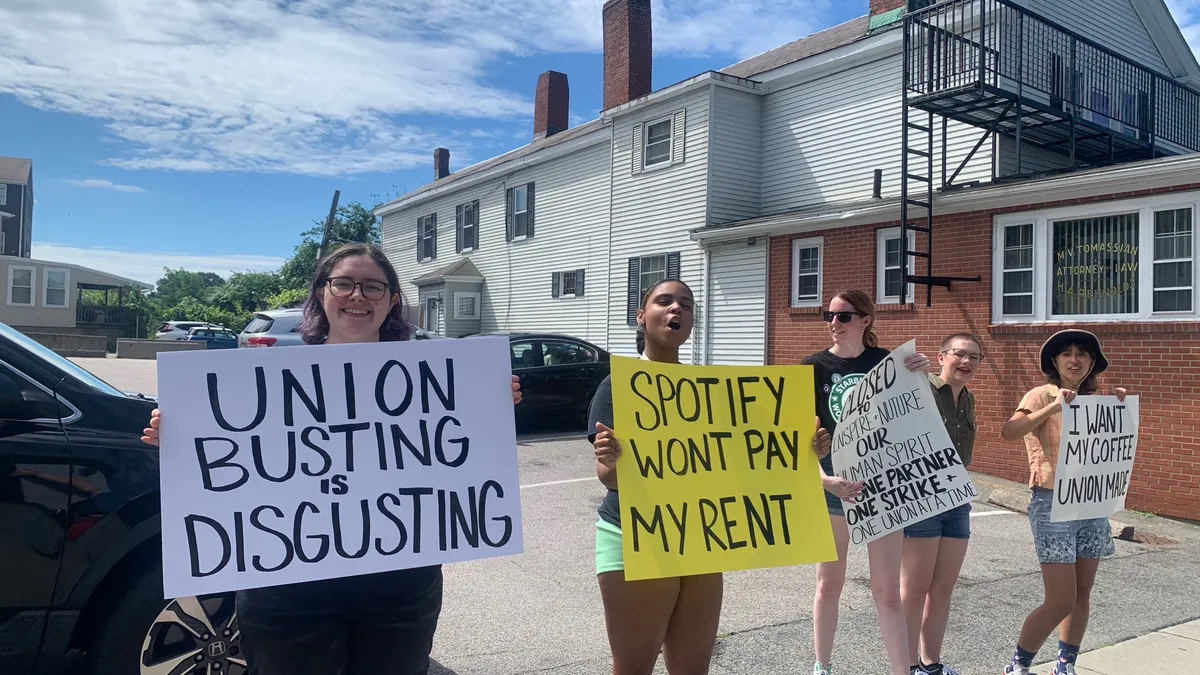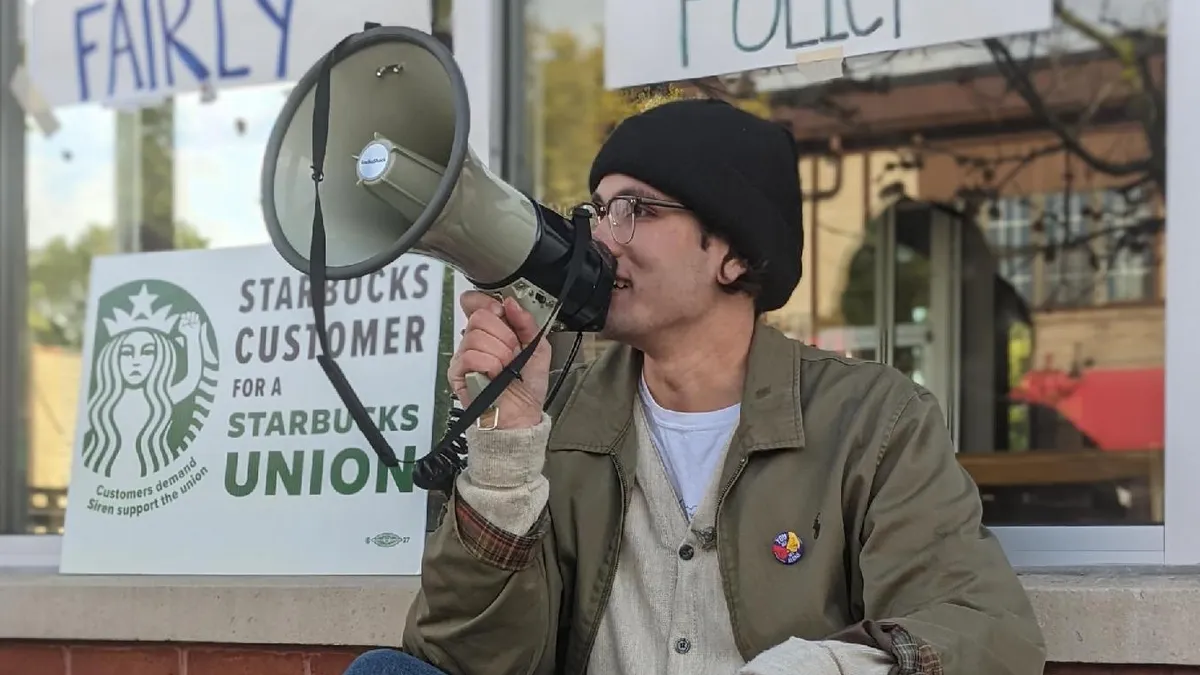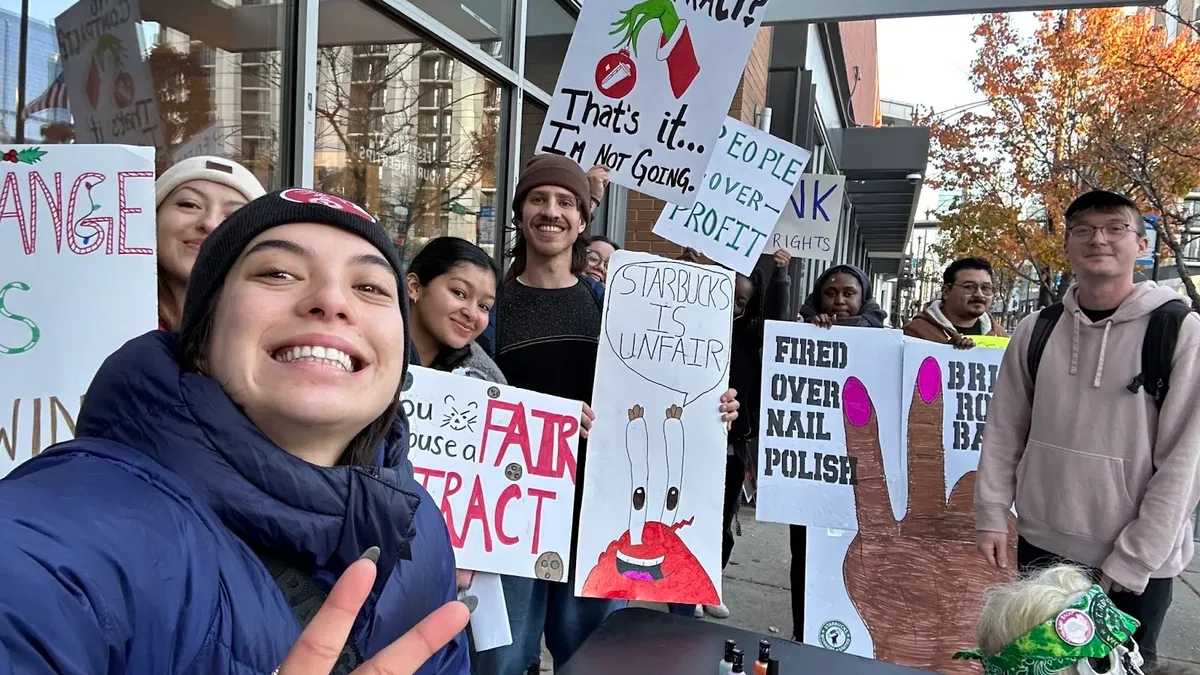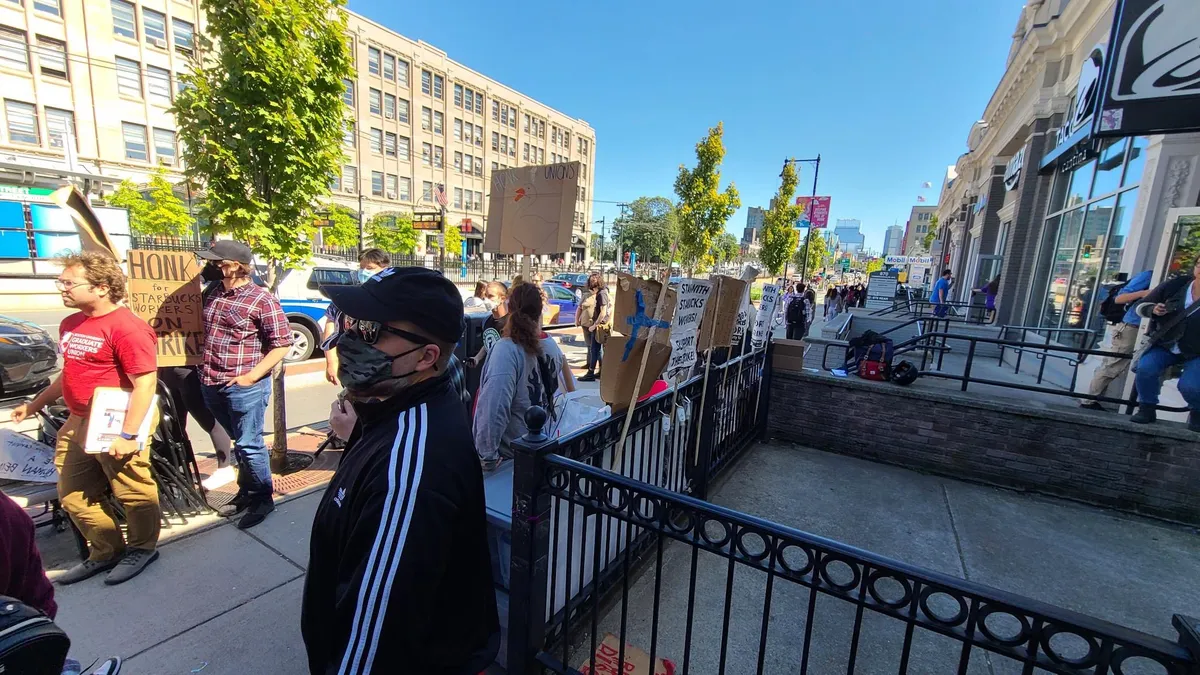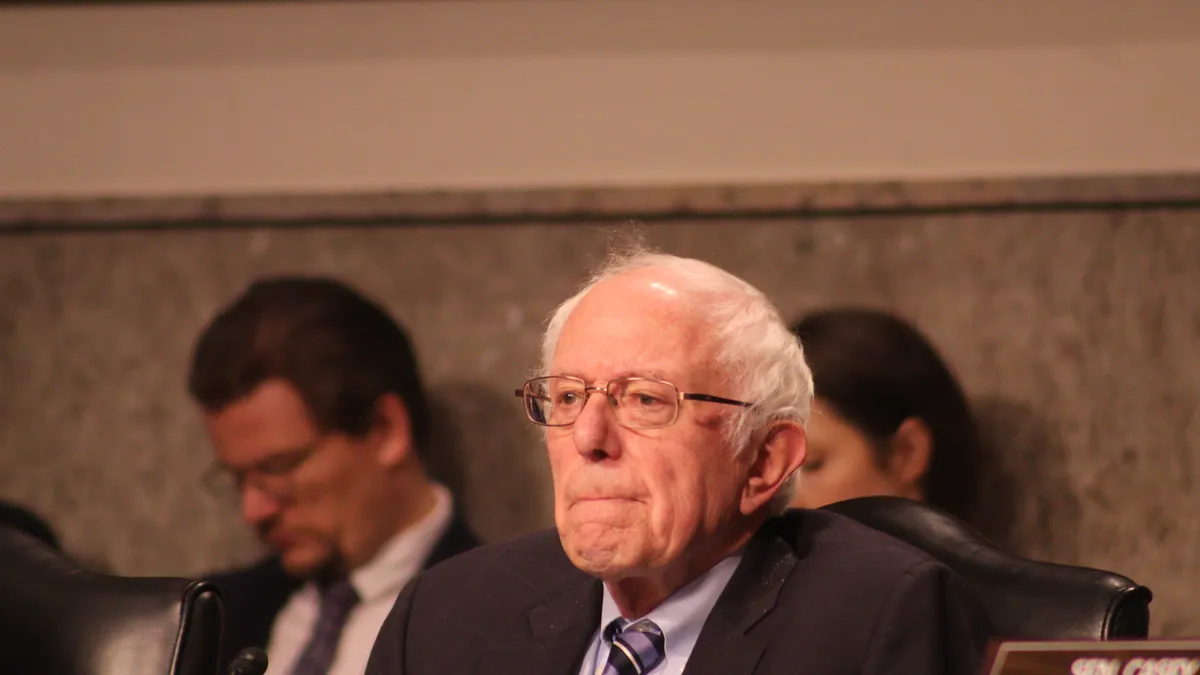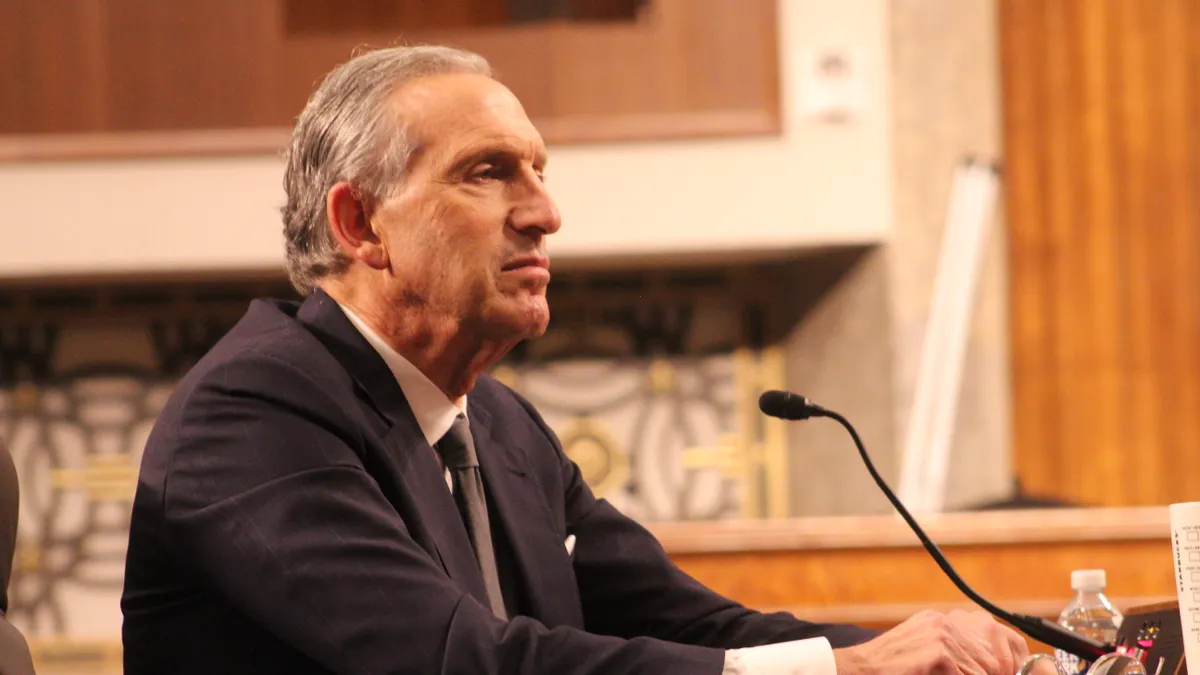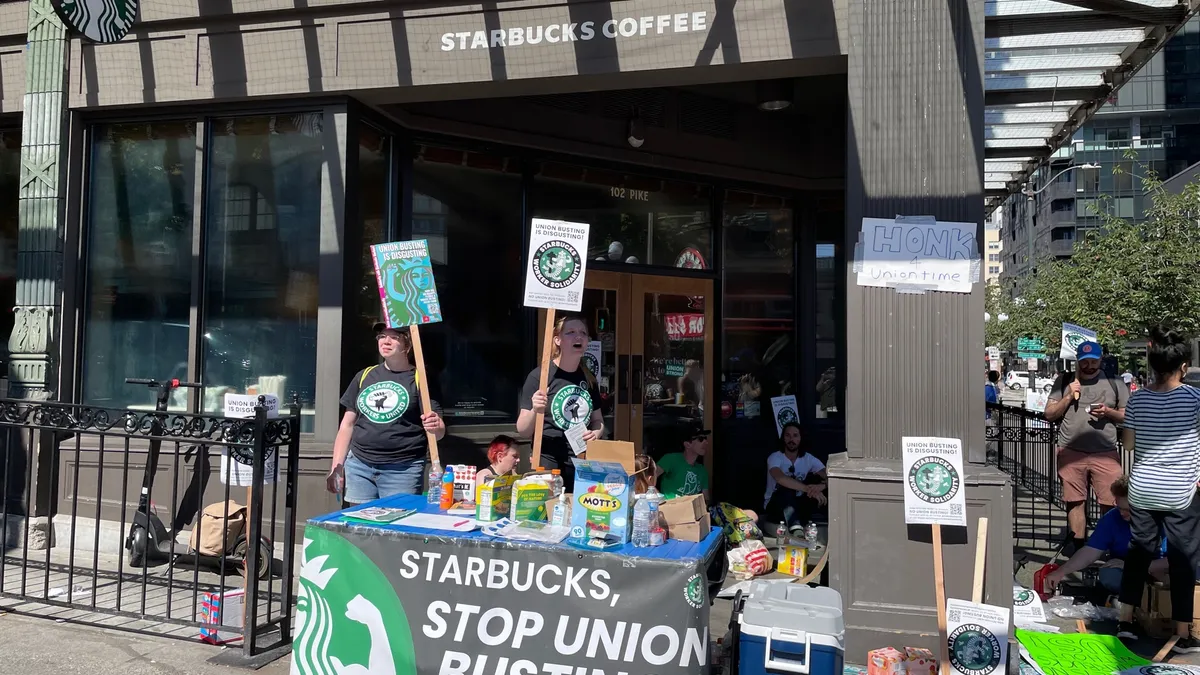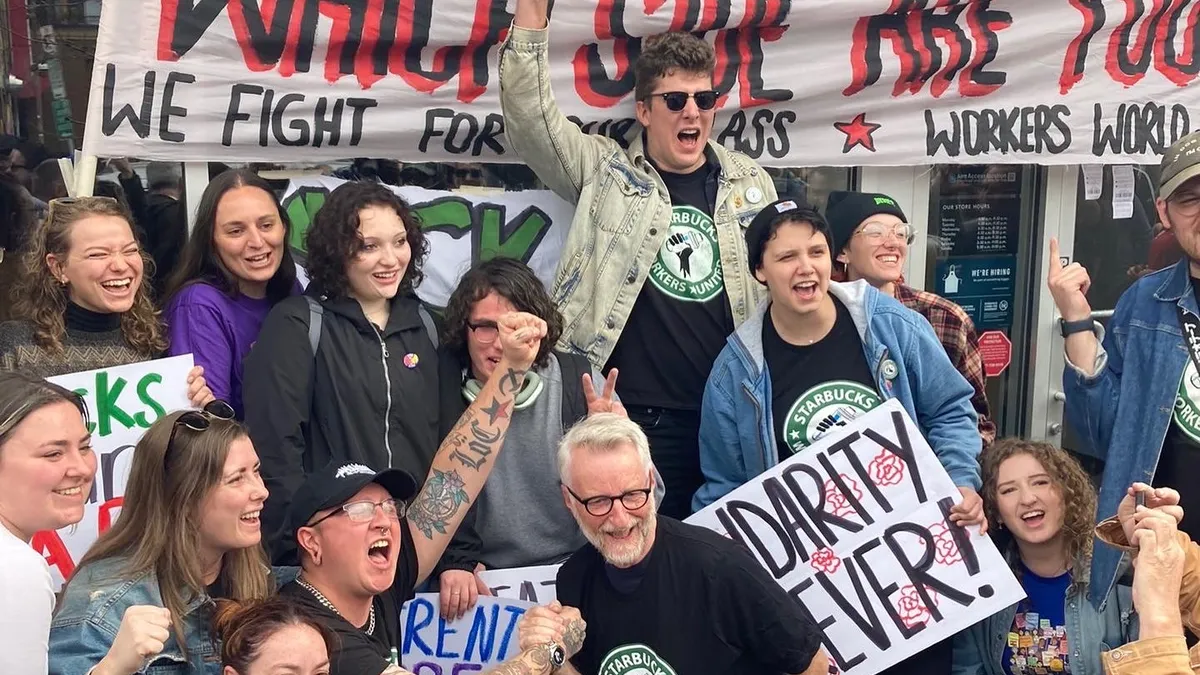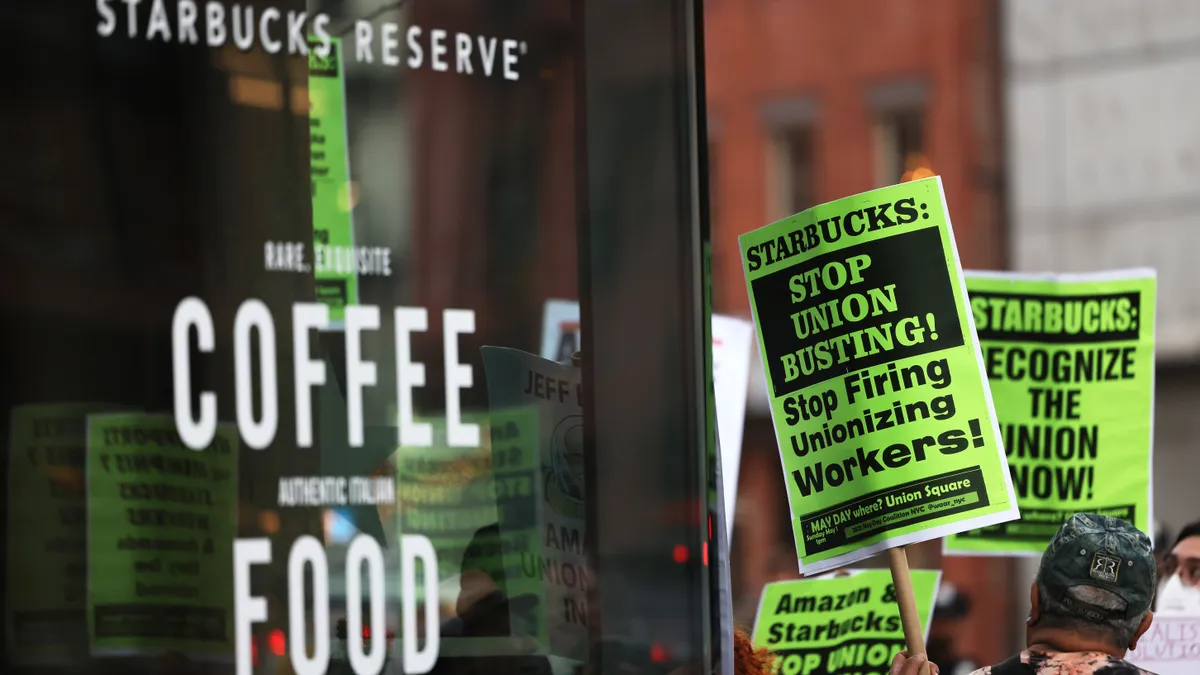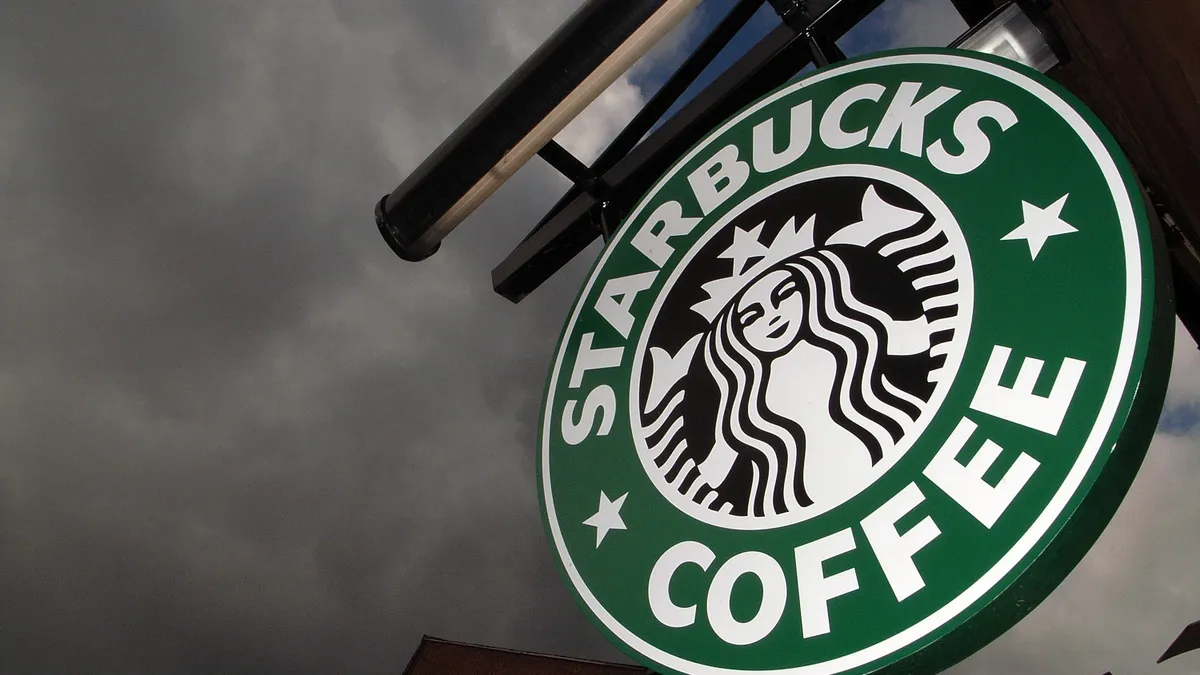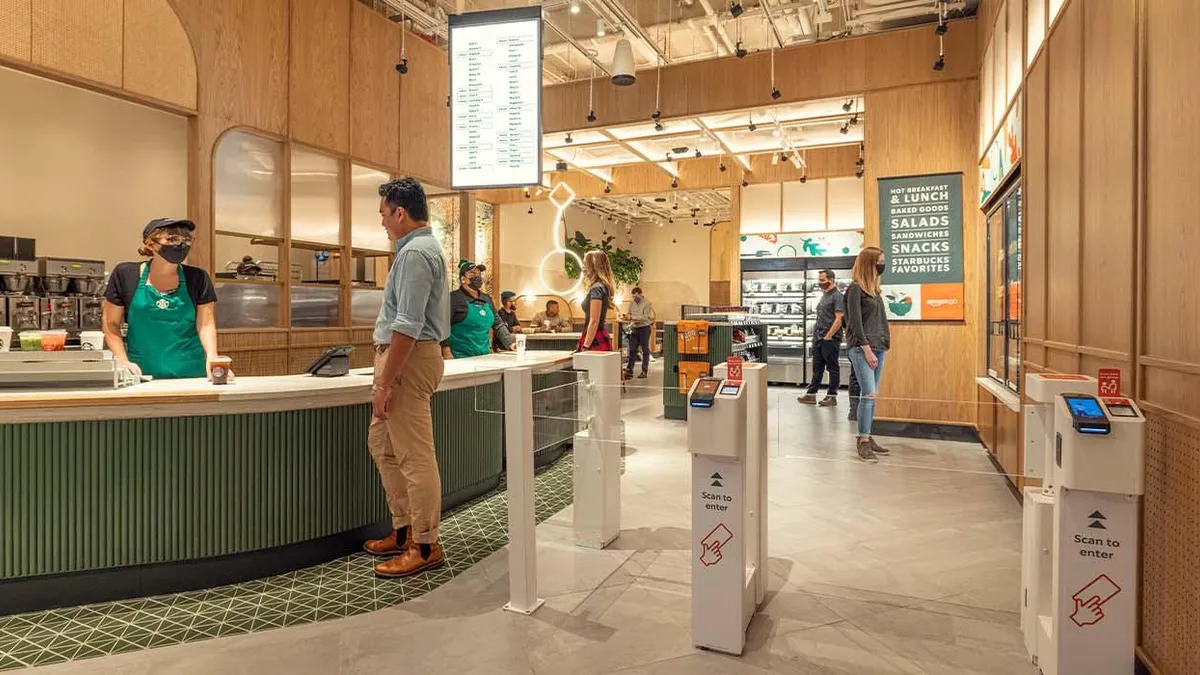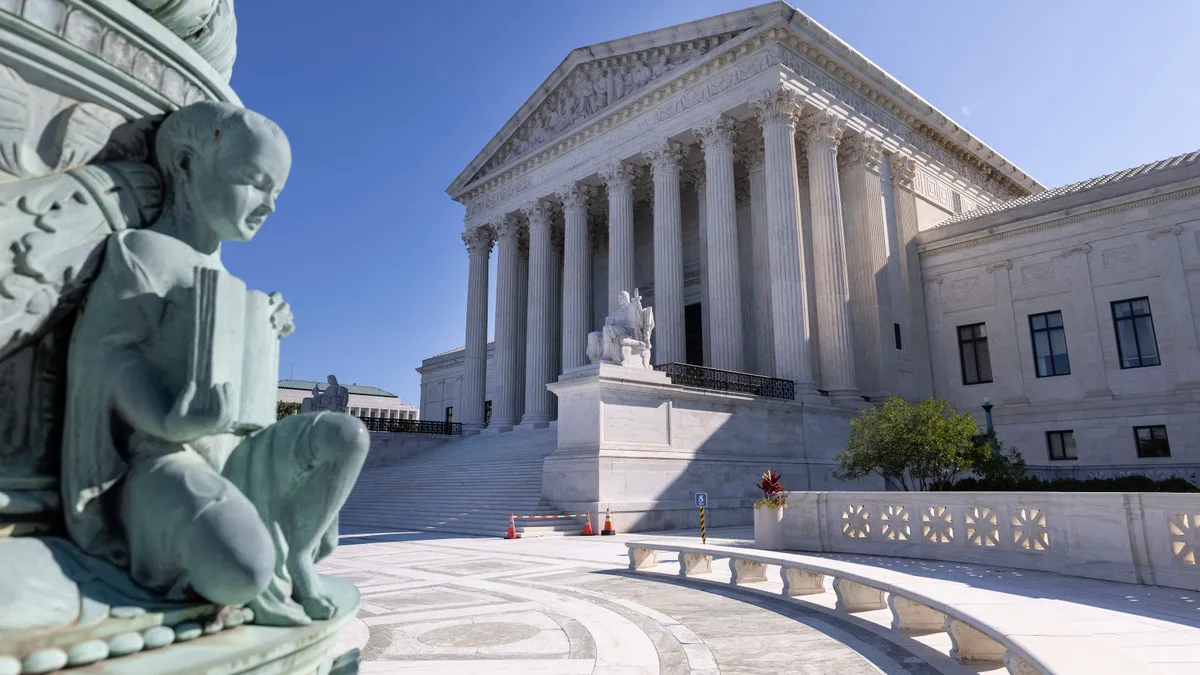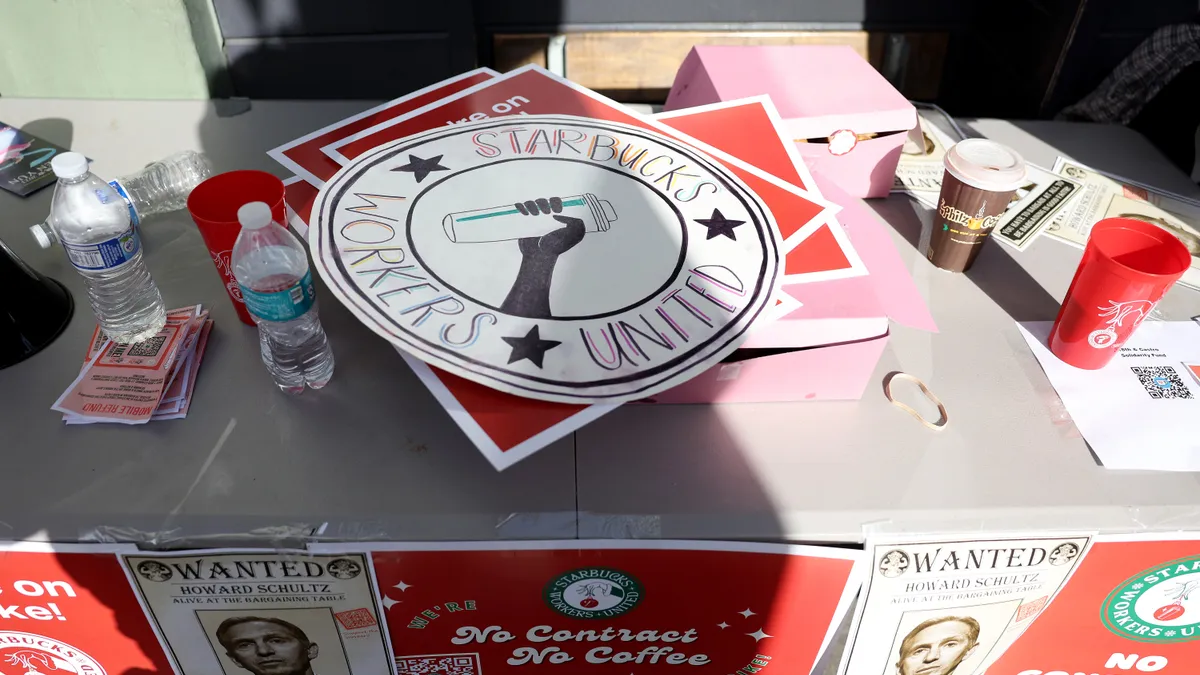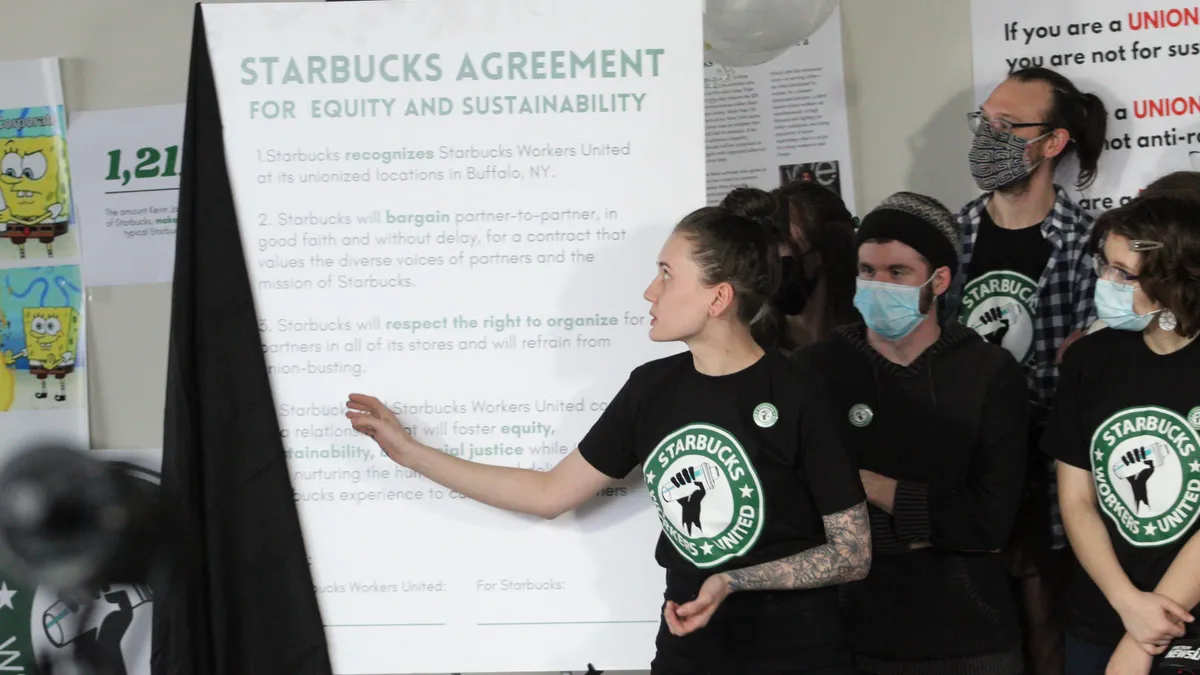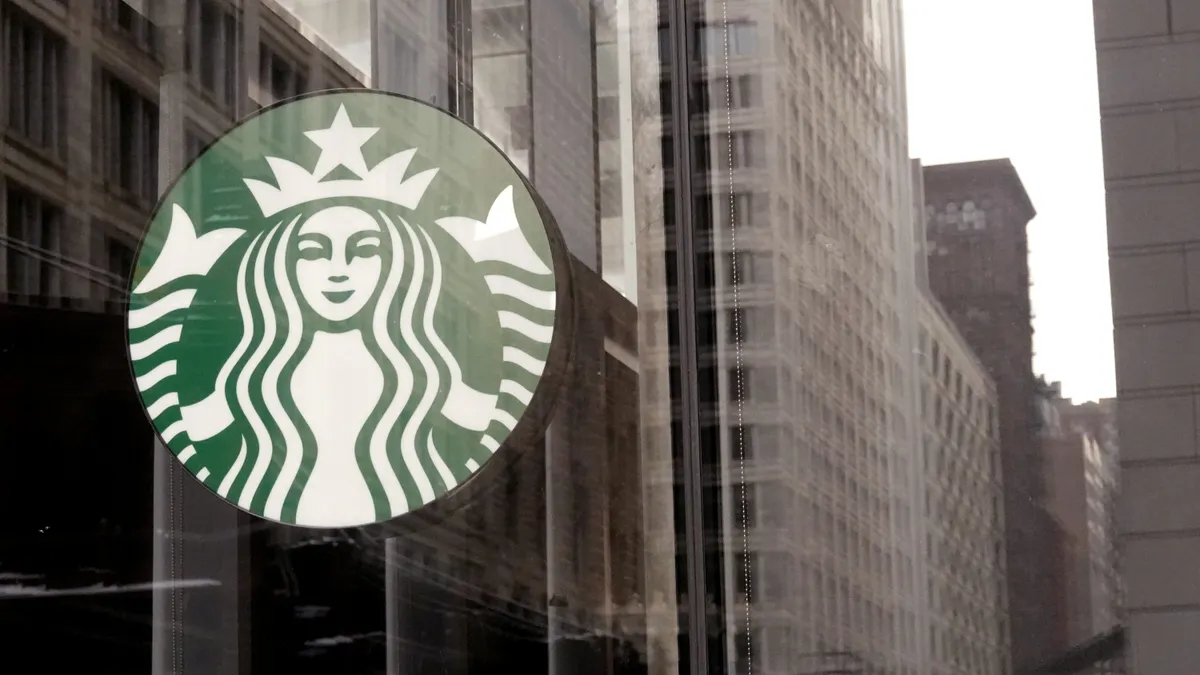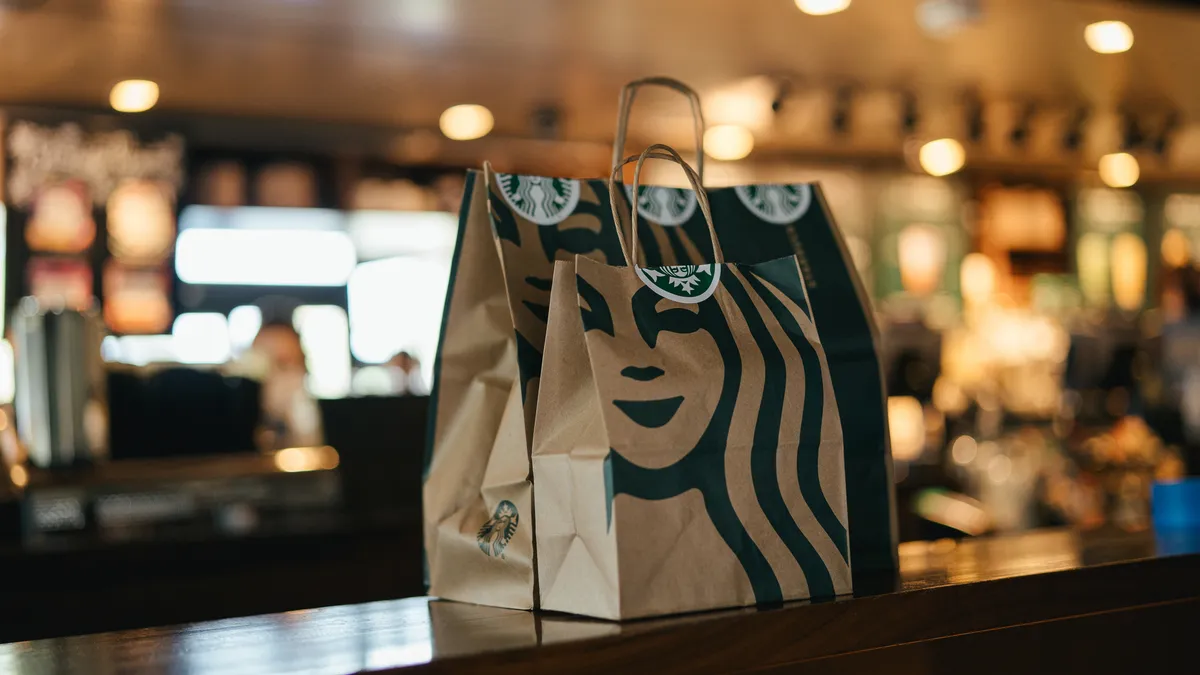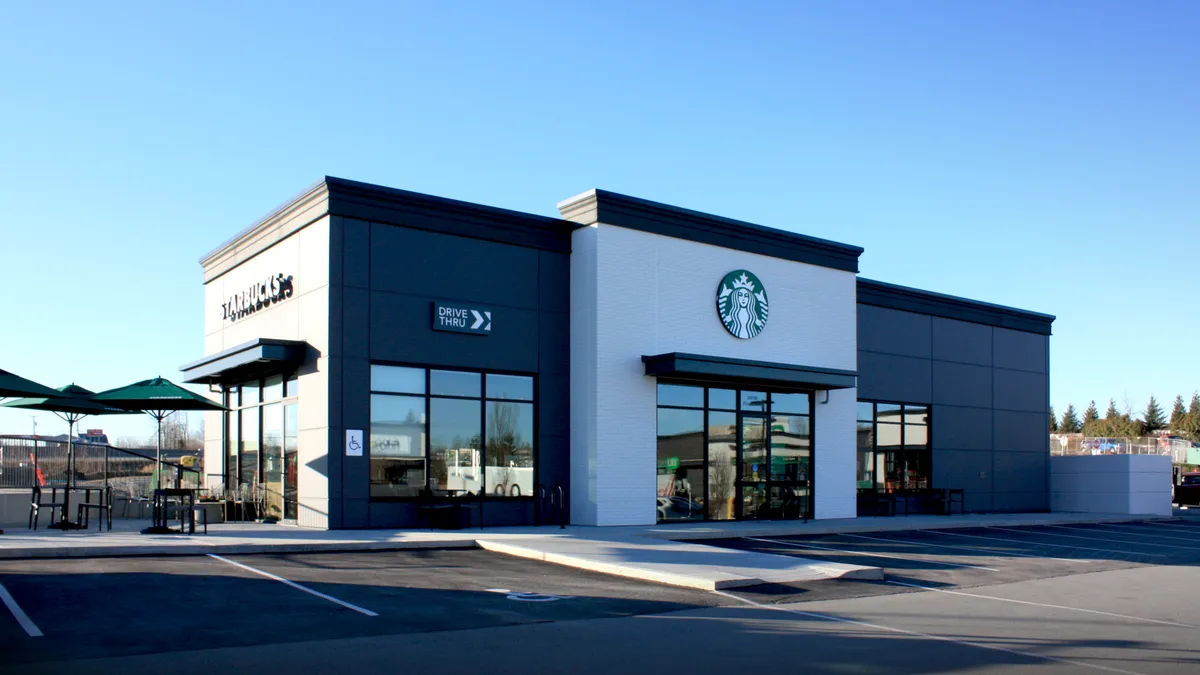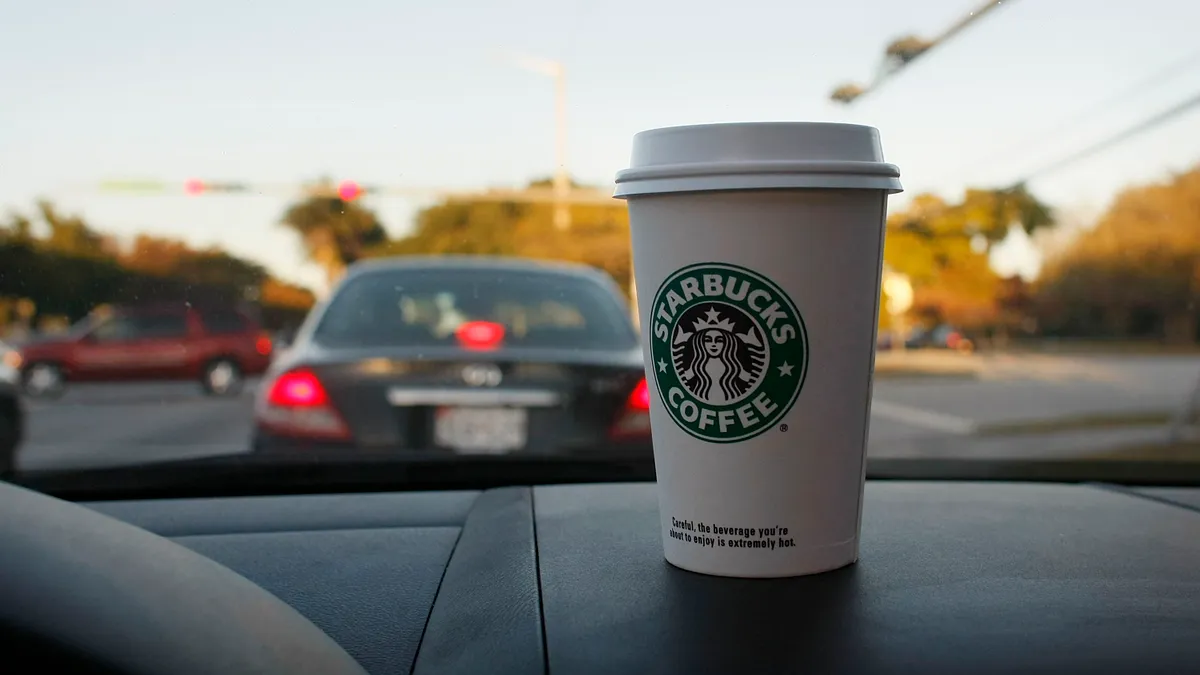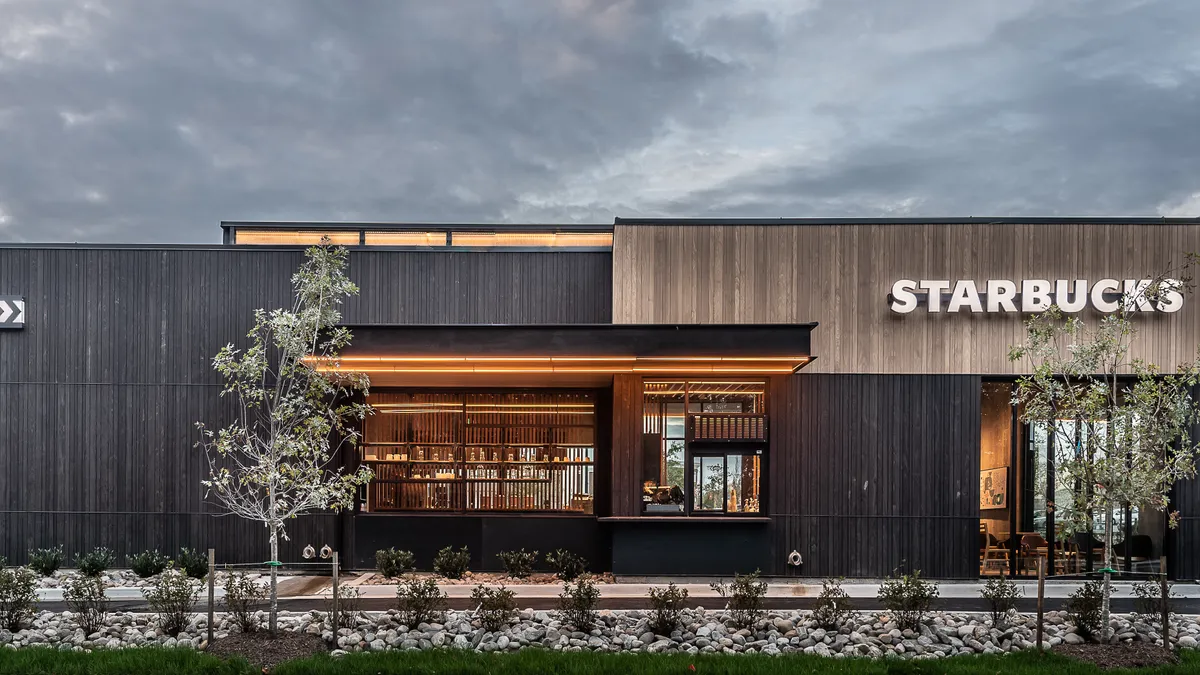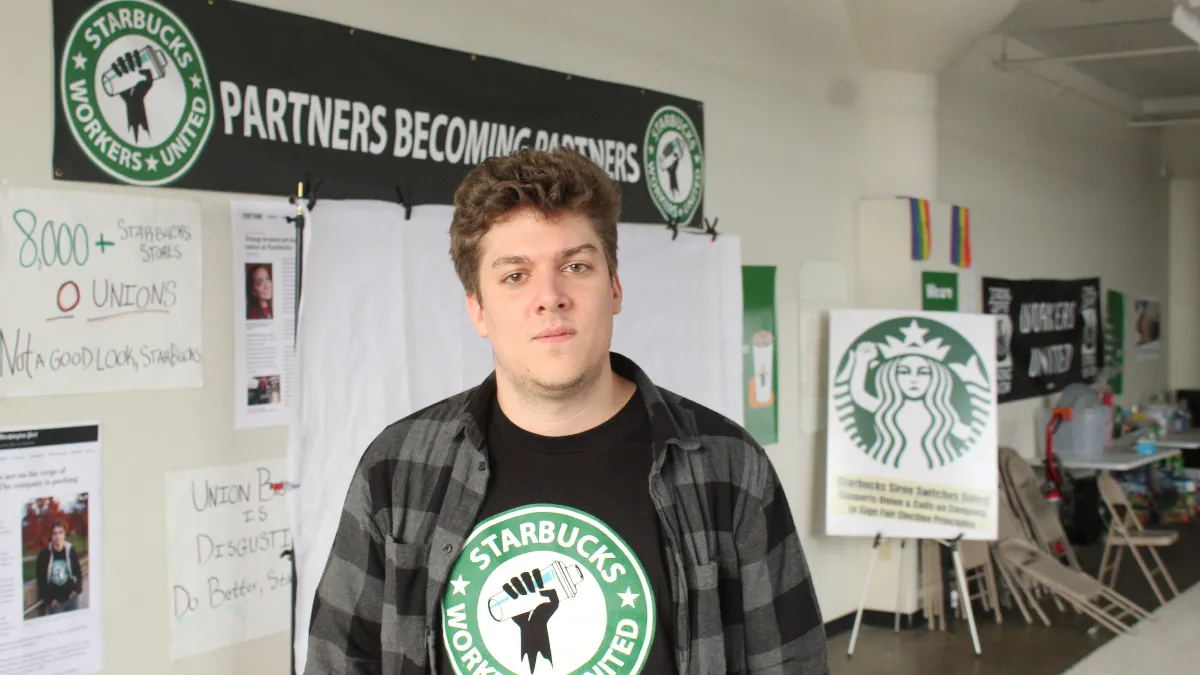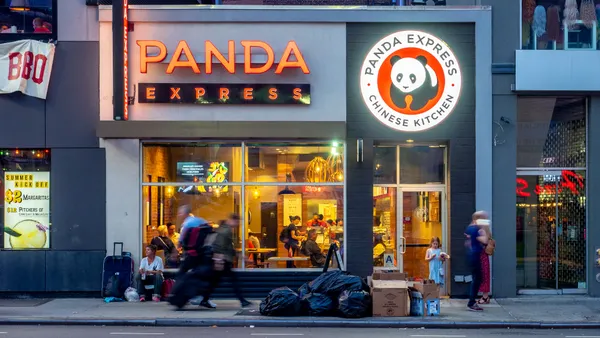Dive Brief:
- The Strategic Organizing Center, a labor federation that includes the Service Employees International Union and its affiliate Workers United, nominated three candidates for election to Starbucks’ board at the coffee giant’s 2024 annual shareholder meeting, the SOC announced Tuesday.
- Starbucks confirmed it had received the nominations and said the board’s nominating and corporate governance committee “will review SOC Investment Group’s proposed director nominee[s] in accordance
with its normal process,” before presenting its recommended slate of candidates in a proxy statement. - The SOC framed its board nominations as a way to add “fresh perspectives and the right expertise to help improve oversight and safeguard the best interests of Starbucks’ shareholders, customers and employees.”
Dive Insight:
The nominations, the SOC argued, are necessary as a result of Starbucks’ response to the organizing of thousands of workers at hundreds of stores with Starbucks Workers United.
“[Starbucks] Board’s current approach likely jeopardizes its ability to fulfill its fiduciary duties to investors and has resulted in arguably one of the most glaring and destructive examples of human capital mismanagement corporate America has seen,” the federation said in its press release, citing hundreds of NLRB charges filed by workers and investigated by the NLRB, its regional offices and administrative law judges.
The SOC said that while Starbucks’ actions “have not yet led to a visible strain on the Company’s financial performance, given the reputational damage and potential impact on Starbucks’ ability to execute its growth strategy, we believe it is only a matter of time until the share price reflects the cost of this failed oversight.”
Starbucks, which has consistently maintained it has not violated labor law, touted its investments in partner benefits and store level changes in its press release responding to the SOC’s nominations. The company said such changes cost 20% of its profits and helped lower turnover to below pre-pandemic levels.
Starbucks also highlighted a new Environmental, Partner and Community Impact committee on the board. That committee “will also have oversight of internal and external reporting tools and assessments, including the annual Global Environment and Social Impact Report (GESI) and initiatives to strengthen partner engagement and revitalize partner culture,” the company said.
Board nominations and proxy fights are a key element of modern labor union strategy, sometimes called comprehensive campaigning. That style of campaigning seeks to combine shopfloor organizing with regulatory scrutiny, pressure on board members — including consumer pressure on companies affiliated with board members — shareholder action, customer action and political mobilization. The long-time frame of comprehensive campaigning and the breadth of its focus are intended to compensate for facets of American labor law, such as the lengthy NLRB elections and adjudication processes and the illegality of secondary boycotts and other actions banned by Congress in the wake of the 1946 strikewave.
Earlier this year, Starbucks shareholders voted in support of a measure proposed by New York City and Liverpool pension funds urging the board to undertake a comprehensive labor rights review. Last year, the Strategic Organizing Center asked the U.S. Securities and Exchange Commission to investigate Starbucks’ disclosures about gift card breakage rates.



